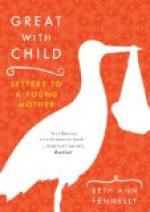Excellent as these remarks are, in general, I do not like his entire interdiction of the use of melons, peaches, plums, and grapes, even in England. Peaches, to be sure, as they come at a season when apples or pears, or both of them—which are more wholesome than peaches—are abundant, may be better omitted, delicious as they are to the taste; and I do not think very highly of plums. But melons, in very moderate quantity, and grapes, if we eat nothing but the ripe pulp, rejecting both the husk and the interior hard part, including the seeds, are, I think, useful and wholesome. On the other hand, I should never place cherries and gooseberries in the same list with strawberries; for the latter are, if I may use the expression, infinitely the most wholesome.
Many seem to think that not to eat all sorts of fruits is to despise, or at least to treat with neglect the gifts of God, intended for our reception; by which they mean, if they mean anything, that the use of all sorts of fruits is already found out, even in the present comparative infancy of the world. Now I do not suppose that God has made anything in vain—absolutely so—though I do not think we have found out the true uses of half the things which he has made and given us. And among those things of which we are yet ignorant, are some of the fruits. I do not believe it follows, necessarily, that because fruits are created, we are obliged to use them all.
Besides, if this is a rule, it is one which nobody follows. Every one uses more of some sorts, and fewer of others; and a large proportion of the community entirely reject some kinds. Now if the statement commonly made, that all fruits are the gifts of God, and ought therefore to be used by all persons, is correct, those who make the statement ought to conform to it as a rule of their lives, and to eat all kinds of fruit which the season and country affords; and not only eat all kinds, but see that the whole of every kind is consumed; since to waste any portion is to slight the good gifts of God.
The result then is, that we cannot obey such a rule; but are driven back to the mode which common sense dictates, which is, to make a selection, using some, and rejecting others. And the value of studying the nature of these fruits, by examining the experience of mankind in regard to them, consists in the aid thus afforded us in making our selection wisely.
There is one very common error in the use of the smaller summer fruits, such as strawberries, whortleberries, currants, &c., which is that of mixing cream, wine, spices, sugar, &c., with them. We are thus tempted to eat too great a quantity at once. Besides—which is a worse evil—we change the proportions of the saccharine parts, and thus do all in our power, by increasing a similarity in all fruits, to destroy that agreeable variety which God has established, and which is probably salutary.
SEC. 11. Confectionary.




